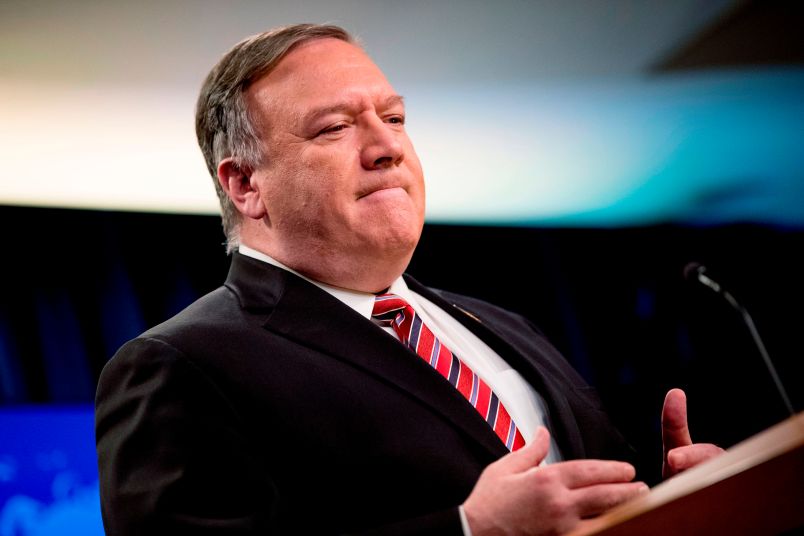Secretary of State Mike Pompeo said Wednesday that there is a “substantial chance” that senior Russian officials directed the poisoning of Russian opposition leader Aleksei Navalny.
“I think people all around the world see this kind of activity for what it is. And when they see the effort to poison a dissident, and they recognize that there is a substantial chance that this actually came from senior Russian officials, I think this is not good for the Russian people,” Pompeo told conservative commentator Ben Shapiro in an interview Wednesday. “I think it’s not good for Russia.”
The comments come as President Donald Trump has declined to condemn Russia for the opposition leader’s poisoning even as world leaders have censured Russia and demanded answers.
On Friday, Trump appeared to defend Russia telling reporters during a news conference that there was “not any proof yet” of Kremlin involvement.
“I don’t know exactly what happened,” Trump said when asked about his stance on the poisoning. Trump has used the same tactic of feigned ignorance many times before when he doesn’t want to assume responsibility to publicly condemn or break ties with those he views as potentially advantageous to his political agenda.
German Chancellor Angela Merkel and British Prime Minister Boris Johnson did not drag their feet in publicly condemning Navalny’s poisoning.
Last week, Merkel’s spokesman, Steffen Seibert, issued a statement formally confirming that testing by a German military laboratory now shows “proof without doubt of a chemical nerve agent from the Novichok group.”
The German government had already reported that Navalny who came out of a coma while being treated in the country, had been exposed to a Novichok — a known chemical weapon developed by the Soviet Union. In recent years Novichok has been used on at least one other occasion in an attack on a Kremlin enemy.



